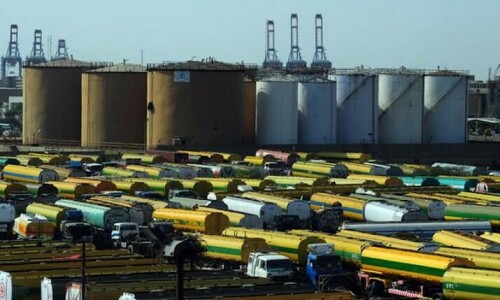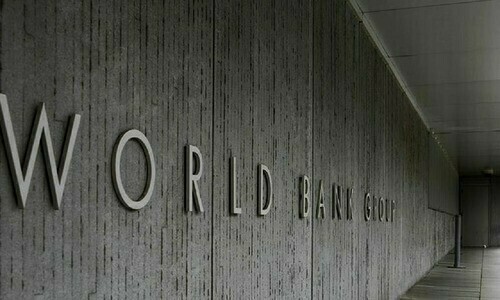Modarabas came under stress in FY09 and FY10 owing to weak economic growth. But from FY10 onwards, their performance improved after the injection of fresh equity and cuts in their operational costs.
In FY09, total assets of modarabas shrank to Rs23.1 billion from Rs28.6 billion a year earlier. But by FY12, modaraba companies managed to expand their asset base well-past the FY08 level to Rs29.5 billion.
Similarly, their after-tax profit was squeezed to Rs780 million in FY10, with a one-year-lag after being hit by the knock-on effects of the global financial crisis on Pakistan’s economy. But in FY11 and FY12, combined after-tax profit of all modaraba companies rose to Rs1.127 billion and Rs1.309 billion, respectively.
Consolidated accounts of all modaraba companies for the full FY13 are not available yet, but top company officials say the rising profitability is being sustained. First Imroz Modaraba, for example, earned Rs16.8 million in after-tax profit in the first nine months of FY13, up 27 per cent from Rs13.2 million in the year-ago period.
“A big cut in operating expenses (down to Rs23.9 million from Rs26.9 million) helped the company make money despite a reduction in turnover (from Rs471 million to Rs438 million),” according to an official.
But while half a dozen efficient modarabas continue to improve their performance, most of the others are just struggling to remain afloat. “Better performance of these modarabas is obscuring the overall situation in this sector,” says an office bearer of the NBFI and Modaraba Association of Pakistan.
For example, in FY12, the combined equity of just six modarabas, i.e. First Habib Modaraba, Allied Rental Modaraba, First Treet Manufacturing Modaraba, Standard Chartered Modaraba, BRR Guardian Modaraba and First Habib Bank Modaraba, constituted 63 per cent of the total equity of all the 26 modaraba companies. Their after-tax profits made up a whopping 95 per cent of the aggregate after-tax profit of the entire sector.
Three things are chiefly responsible for the bad performance of weaker modarabas. The first is the low-level equity, which makes it difficult for their managers to enter big-ticket businesses. Second is their high operating expenses, and third, high cost of borrowings.
The last factor also challenges the performance of even efficient modarabas. “One way to overcome this problem could be the injection of foreign credit lines or foreign investment into modarabas,” says the chief executive of a leading modaraba company, while recalling how in the 1990s, the International Finance Corporation (IFC) had provided a credit line to the modaraba sector through a Shariah-compliant arrangement.
He says the launching of new modaraba certificates and even secondary offers of in-circulation certificates can help modaraba companies raise funds from the domestic market. “Besides, mergers and acquisitions have become long overdue, and if this option is not exercised in the near future, some modarabas will have to close shop.”
According to some people in the industry, the more modaraba companies move from trading to the manufacturing business, the brighter are their chances for growth. First Treet Manufacturing Modaraba, run by Global Ecno Trade Pvt. Ltd. (a wholly-owned subsidiary of Treet Corporation) is an example.
Blessed with an equity base double the industry average, this particular modaraba, which is involved in the real manufacturing business of packaging materials and soaps, has been doing surprisingly well for the past three years. After posting after-tax losses in FY08 and FY09, the modaraba company earned a Rs48.5 million profit in FY10; then more than doubled it to Rs123 million in FY11, and further raised it to Rs188 million in FY12.
“Unlike other companies, our operating expenses have been on the rise, as our operations have been expanding fast,” says a company official, while making a point that the reduction in operating expenses in absolute terms is immaterial. “What matters most is the ratio of operating expenses to net income.”
On this count, the First Treet Modaraba is in good standing. It brought down this ratio from 92 per cent in FY10 to 49 per cent in FY11, and maintained it around the same level in FY12.
Executives of some modarabas say whereas mergers of modarabas may prove tricky given the complex nature of the business, acquisitions offer quicker prospects of growth.
The revival of industrial activity has brightened the scope for acquisitions of modarabas by those who are engaged in the manufacturing business, from the management companies that are currently concentrated in the services sector.
They say a few weaker modarabas have lately been in talks with some textile and food companies, and add that acquisitions of modarabas by prospective parent companies in textiles and food business ‘should change the face of this sector’.
Progress is lacking where modaraba companies continue to focus on Ijarah (leasing) as their main source of income. But where they employ other tools of generating income, results are encouraging. In FY13, the Standard Chartered
Modaraba reduced its stock of investment in Ijarah finance and Ijarah assets.
But it increased its stock of investment in diminishing Musharika and Sukuks to Rs1.51 billion, from about Rs1.16 billion. Its profit before management’s remuneration soared to Rs144 million, from Rs114 million.
“The point is, concentration in Ijarah finance and Ijarah assets should gradually lose its share in your total investment portfolio, and the share of other modes [of investment] should gradually increase. That’s the way forward,” asserts a company official.
A former senior central banker says growth of the sector depends on how fast modaraba companies establish their utility in an environment where Islamic banking is spreading and the financial sector on the whole remains shy of progressively catering to the real sector.
“The worst thing about our financial sector is that it’s various sub-sectors tend to consolidate to make a big financial empire, instead of each sub-sector doing what is required of it.”
“Modaraba companies should go for branch network expansion and reach out to small businesses that need Shariah-compliant, tailor-made financing and investment advisory in agriculture and livestock; small-scale trading; rural market infrastructure and transportation etc. They shouldn’t over-invest in financial products,” he says. —Mohiuddin Aazim













































Dear visitor, the comments section is undergoing an overhaul and will return soon.